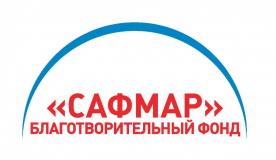From September 8 till October 14, NES held Guest Lectures Series - five online lectures by the world's leading scholars.
NES Public Lectures: Guest Lecture Series
Joel Mokyr, Professor of Economics and History, Northwestern University
 Moderator: Andrei Markevich, NES Professor
Moderator: Andrei Markevich, NES Professor
Theme: The Great Enrichment: How Western Europe Became Global Economic Leader in the 18th and 19th Centuries
The process of modern economic growth, or as it is also called, the Great Enrichment, has begun in Western Europe in the 18th century. However, it was not an inevitable part of European history. How did an open market for ideas and political fragmentation lead Europe to wealth? And what was the role of culture, artisans, and practical science in this process?
Esther Duflo, Professor of Poverty Alleviation and Development Economics, MIT

Moderator: Ruben Enikolopov, NES Rector
Theme: Good Economics for Hard Times
Inequality, social insecurity, environment, migration, and slowing economic growth are among the main problems of today's global economy. However, in the public discussion and among scientists, these problems are often seen quite differently. For example, contrary to popular belief, economists know that wages of migrants in a new place of life increase strongly, while the local population does not see their wages fall at all, and wages of those who decide to stay in their villages in a poor country also increases. What myths are there today related to economic policy? And what solutions to the most pressing economic problems do modern researchers have?
Paul Collier, Professor of Economics and Public Policy, Blavatnik School of Government, University of Oxford
 Moderator: Gerhard Toews, NES Professor
Moderator: Gerhard Toews, NES Professor
Theme: The Future of Capitalism
In a modern world, we have thriving cities and rural counties, the highly skilled elite and the less educated, wealthy, and developing countries. As these divides deepen, we have lost the sense of ethical obligation to others that was crucial to the rise of post-war social democracy. So far these rifts have been answered only by the revivalist ideologies of populism and socialism, leading to the seismic upheavals of Trump, Brexit, and the return of the far-right in Germany. We have heard many critiques of capitalism but no one has laid out a realistic way to fix it. How to save capitalism from itself? And what kind of future we might have?
Stefanie Stantcheva, Professor of Economics, Harvard University
 Moderator: Ruben Enikolopov, NES Rector
Moderator: Ruben Enikolopov, NES Rector
Theme: Surveys and Experiments to Understand How People Think about the Economy
What people think about important economic issues? How do their perceptions correspond to reality? Stefanie Stantcheva will present a recent survey and experimental work that shows how people understand and learn about economic issues, such as social mobility, immigration, taxation, health insurance, or the macroeconomy.
Adam Alter, Professor of Marketing at New York University’s Stern School of Business
 Moderator: Daria Dzyabura, NES Professor
Moderator: Daria Dzyabura, NES Professor
Theme: Tech and Screen Addiction
Modern tech companies use the latest scientific discoveries to create addictive products for their users. Some 50-60 years ago, people became addicted to cigarettes, alcohol, and drugs, but in the digital age there are many more products that cause addictive behavior: gadgets, social media, online stores, etc. There have never been so many "hooks" before, and only now are we starting to think about it. New addictions, although not related to the use of chemicals, have the same effect as drugs.
NES Public Lectures – is the NES educational project, started in the fall of 2018. Under this project leading world and Russian scientists and experts talk about economics and finance and its impact on modern society. To learn more about the NES Public Lectures, follow the link here.
NES Public Lectures media partner: Publishing House «Kommersant»

NES Public Lectures partners: project «BUDU»

NES Public Lectures are held with the support of the Charitable Foundation "SAFMAR".



